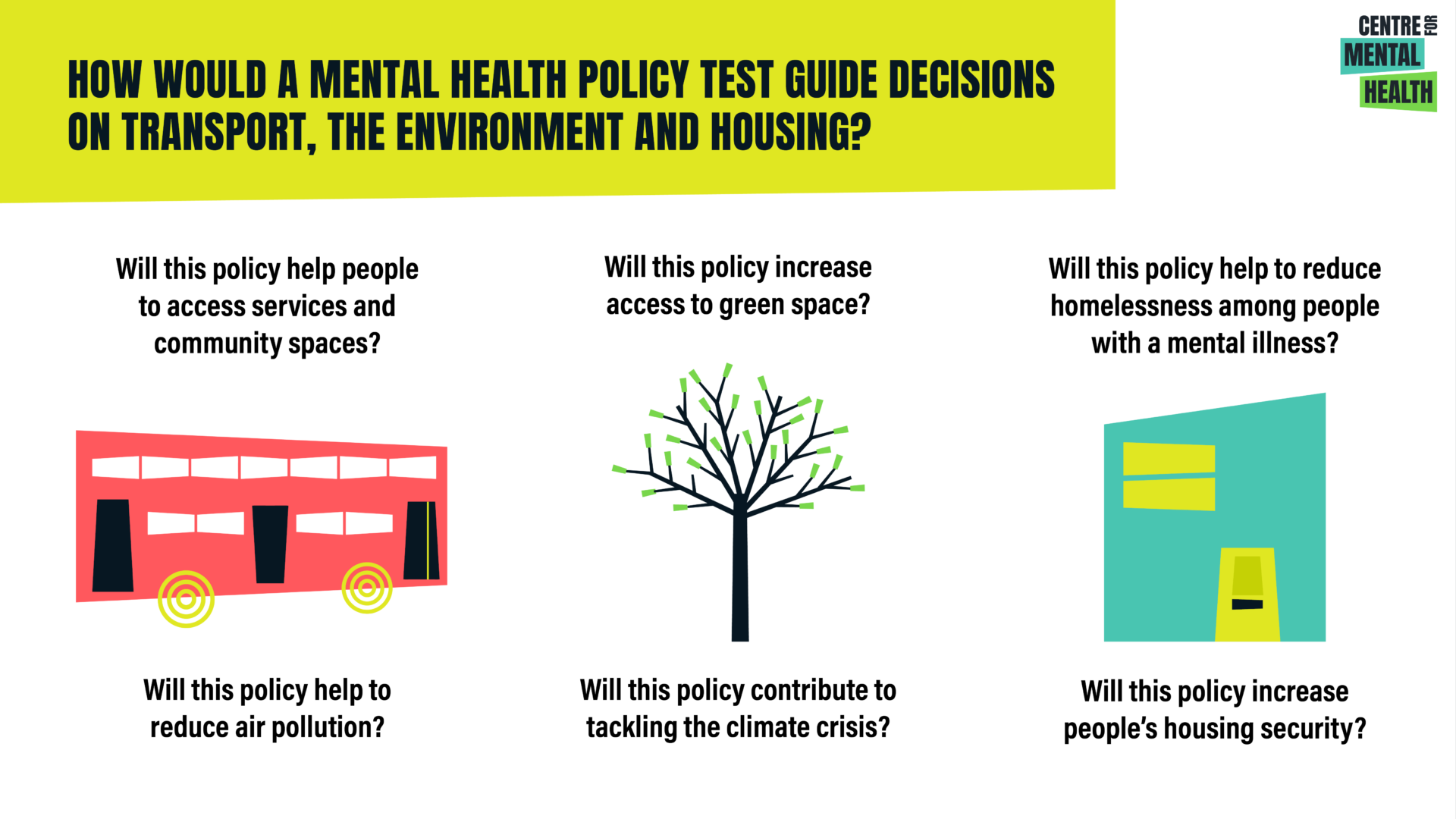The case for a mental health policy test
Callum Young and Andy Bell
Every government policy affects our mental health, for good or ill. But policies across government, from transport and housing to social security and the environment, are often made without due consideration of how they could boost or harm the nation’s wellbeing.
Policies for better mental health calls for the implementation of a mental health policy test, which would ensure that policy proposals across government are assessed on how they are likely to affect people’s mental health before being implemented.
How would a mental health policy test work?
The process would involve gathering evidence on the impact any proposed government action would have on people’s mental health and weighing up whether it would result in a ‘net-positive’ effect. This would allow policies to be changed to produce greater benefits or prevent any harmful impacts before they are implemented.
For example, we could point to the recent proposals to change Personal Independence Payment (PIP) as an example of a policy with major mental health implications. A robust policy test would alert policymakers to the harms caused by increasing financial strain on people already struggling with their mental health, and motivate them to consider alternative approaches.

Policies for better mental health highlights how the Government can consider the knock-on implications of any new proposal by committing to a robust mental health policy test. It points to examples where policy testing in local and national government has already led to better outcomes for society. And it shows how mental health policy tests could reduce mental ill health and lead to better policies overall.
We’re calling on the Government to put in place a robust mental health policy test, alongside a national mental health plan and a Mental Health Commissioner, to see a real change in the way policies get made and their lasting impacts on the lives of millions of people nationwide.






